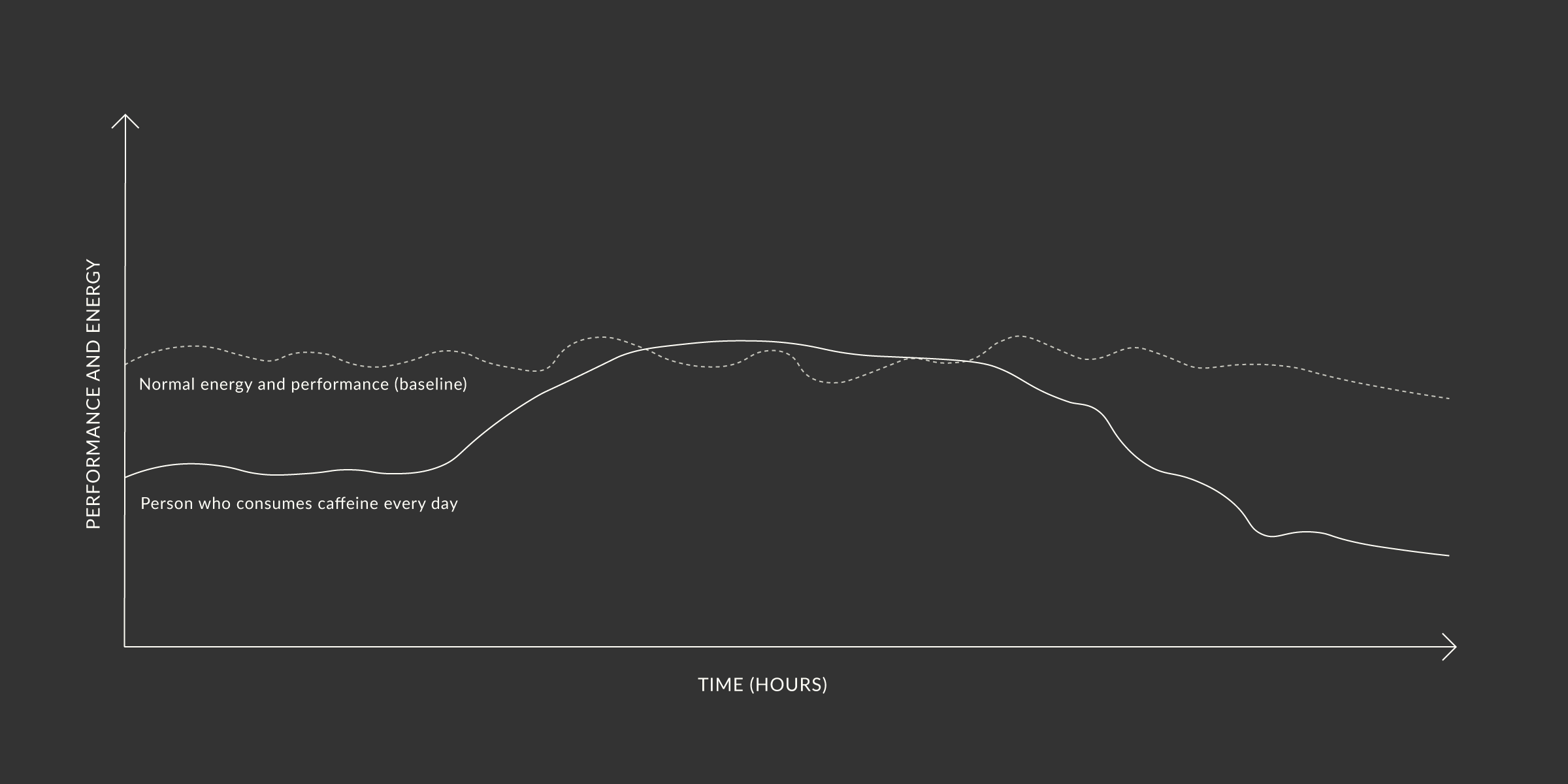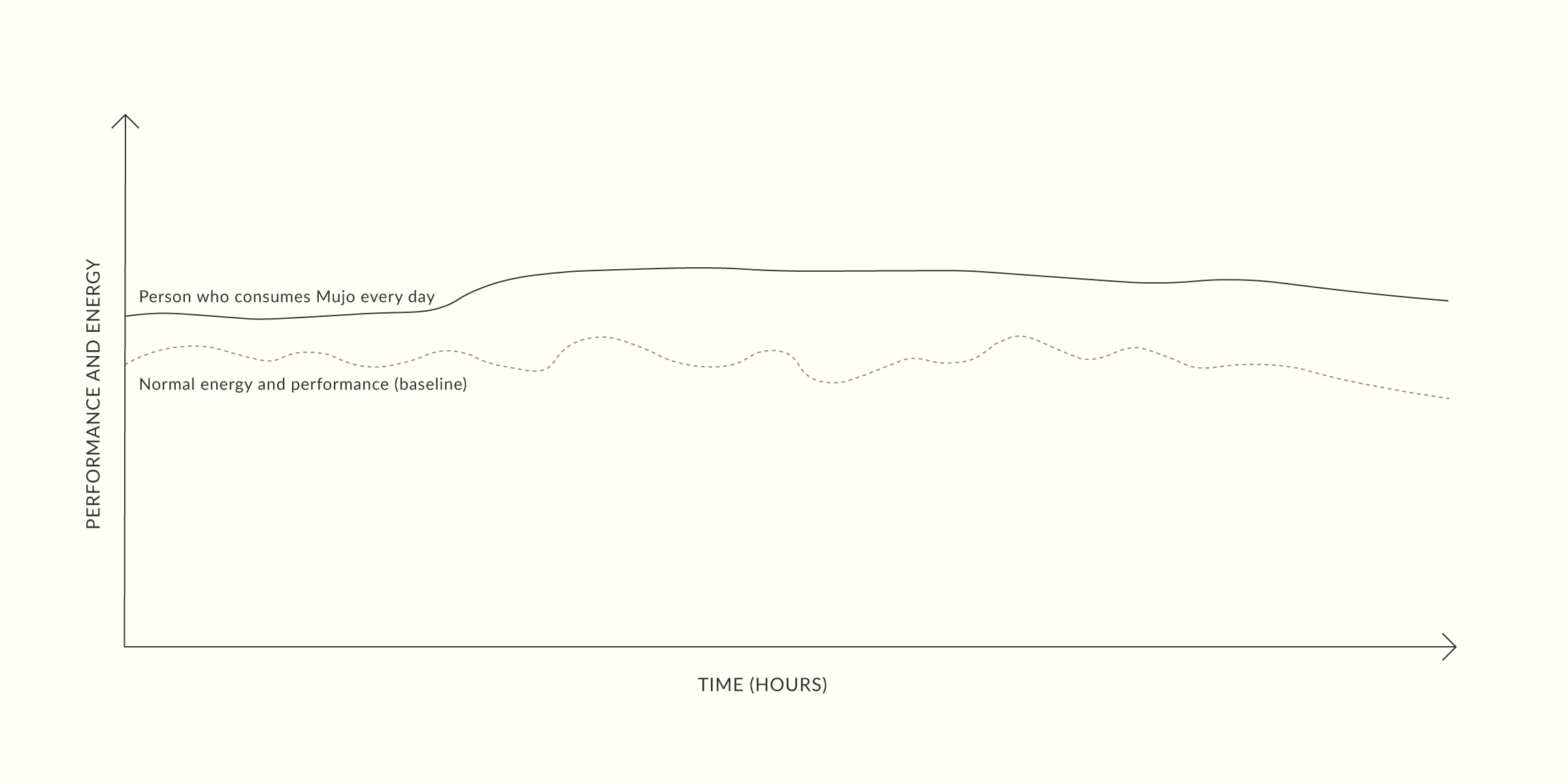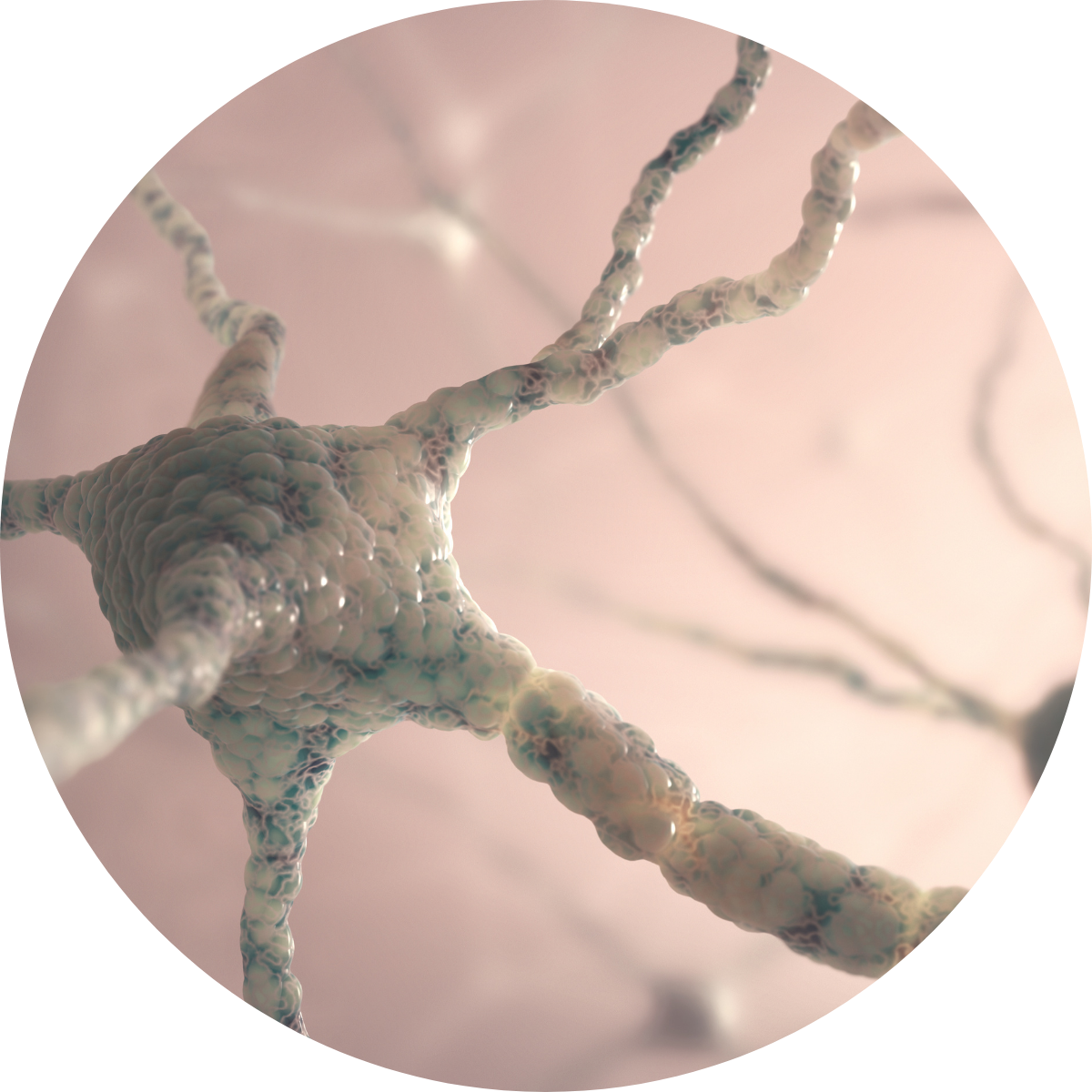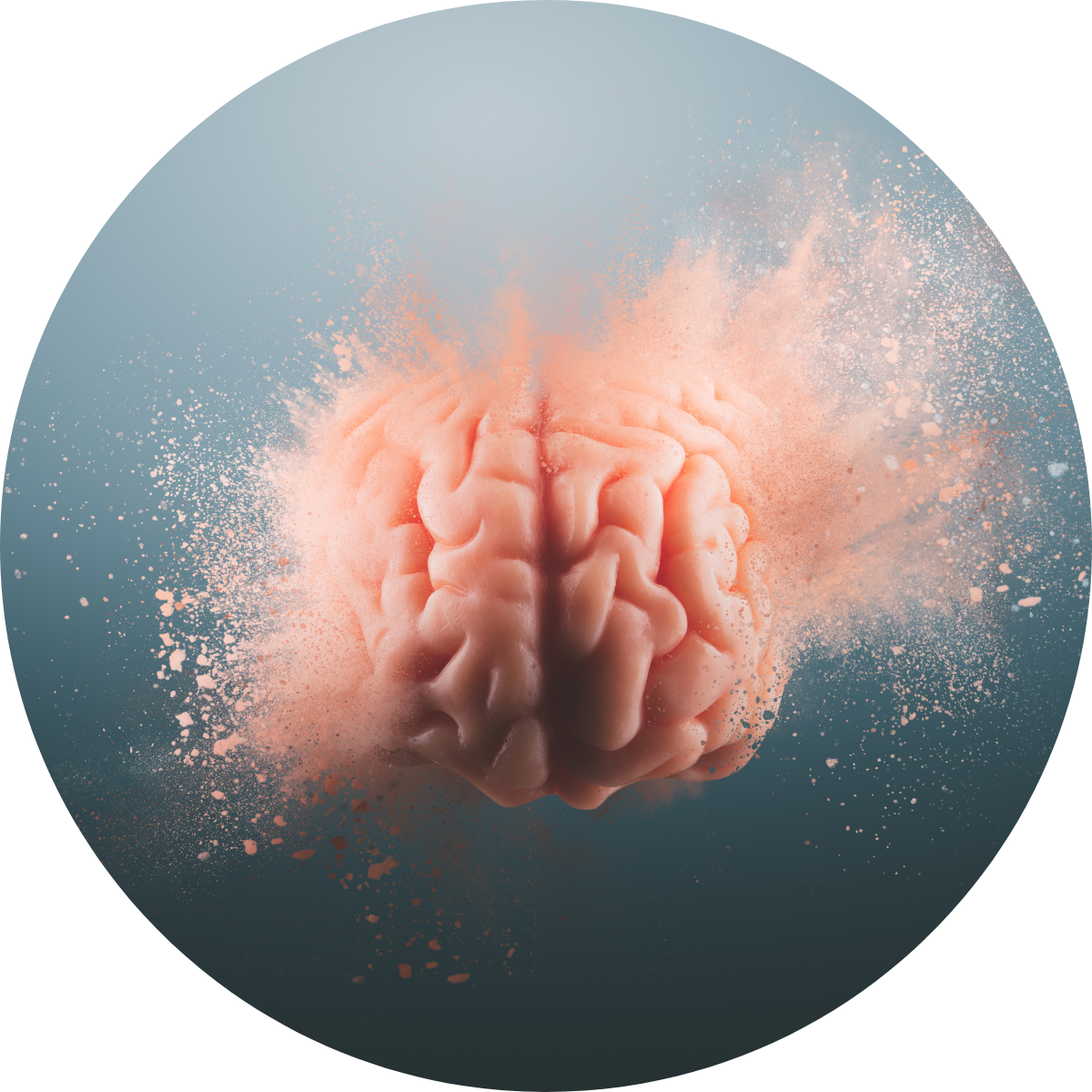
SCIENCE TO KNOW
Elevate your mental performance
In today’s fast-paced world, many of us are over-caffeinated, under-rested, and under constant pressure. This doesn't just mess with our “flow,” but it also lead to chronic stress that can have serious negative implications for long-term health.
75% OF AMERICANS EXPERIENCE HEALTH IMPACT DUE TO STRESS
Chronic stress criples the immune system, upsetting hormonal balance and triggering inflammation. Uncontrolled inflammation lies at the root of numerous diseases, including obesity, cancer, heart disease, arterial disease, depression, Alzheimer’s, arthritis, and more. Managing stress is pivotal for averting the dangerous consequences of chronic inflammation.
PROBLEM #1
Chronic caffeine consumption
The way most people consume caffeine is actually harming their energy levels, mental and physical performance, and mood.

DAILY COFFEE

DAILY MUJO
LEARN
Caffeine 101
Caffeine doesn't give you energy. It blocks the fatigue effect of adenosine, your sleep neurotransmitter, by binding to its receptors. This creates an energizing stimulant effect.
Once the caffeine wears off, adenosine begins to bind to its receptors, causing a caffeine crash and lowering your mood, energy and performance.
By blocking adenosine every day, you create a chronic imbalance in your brain's neurotransmitters. Your brain thinks there are too many stimulating neurotransmitters and not enough relaxing ones.
THE IMPACT
Attention and performance crisis
1 billion cups of coffee are consumed around the world every day. Our society suffers from an attention and performance crisis because we have made ourselves chronically tired. Our brains don't have a chance to reset their natural rhythm because every day caffeine creates negative neurotransmitter adaptations in our brains.

#1: Lower energy baseline
Your baseline energy, mood, and level of mental and physical performance all drop. Anxiety increases. Your energy suffers when you're not on caffeine.

#2: Caffeine Tolerance
You develop tolerance to caffeine and need more to get you going. There is much more adenosine floating around in your brain now, so you need more caffeine to fight fatigue.

#3: Disrupted sleep
Your sleep quality suffers because of the ever present caffeine. The less you sleep, the more your memory and ability to think deeply and make connections are impacted.
★★★★★
"I am much calmer and productive than ever before. I didn't even realize how stressed coffee was making me until I tried Mujo."
KATY, LOS ANGELES
"I used to get pretty anxious and jittery after coffee. But with Mujo I feel like a zen monk and alert like I just took a cold plunge."
ROBERT, NEW YORK
"The flow I get after Mujo is unreal. I'm surprised it works so well without any caffeine, but it does."
CARL, WASHINGTON DC

PROBLEM #2
Chronic stress
Human beings need a little bit of pressure to perform. However, once we reach peak performance and the pressure keeps on piling on, the performance starts to drop. Too much stress without recovery can be detrimental and lead to burnout. People who are generally high achievers, parents, and even perfectionists might suffer from chronic stress. Anyone who gets a lot of value from their work identity or those with caring responsibilities at home can also be severely affected.
LEARN
Stress 101
There are two types of stress: short term (acute) and long-term (chronic). Chronic stress is a consistent sense of feeling pressured and overwhelmed over a long period of time. It can wreck havoc in your body.
Cortisol is your stress hormone, but it also manages your energy, inflammation, metabolism, weight gain, and other key hormones like estrogen, testosterone, and thyroid. Normally functioning cortisol peaks once during morning-time and declines steadliy for the rest of the day.
Mitochondria are organelles inside your cells that produce energy, ATP (adenosine triphosphate). When your mitochondria sense stress, they shut down energy production. This is why you feel tired when you're stressed.
THE IMPACT
Fatigue and inflammation

#1: Mitochondria
All energy required for life is produced in the mitochondria, the chief executive organelle of the cell. When the mitochondria are exposed to stress, they can halt energy production and put the cell in defense mode to protect it (Cell Danger Response). Stress can damage the mitochondria and its DNA, cutting down production of ATP.

#2: Cortisol
Chronic stress and caffeine both increase the production of cortisol, which turns cortisol production into a roller-coaster that can disrupt vital functions. When we have chronically elevated cortisol levels, it creates an inflammatory response in the body, disrupting the normal function of our hypothalamic-pituitary pathway in our brain.

#3: Brain
Studies have shown that chronic exposure to stress is associated with reduced volume of the hippocampus. Chronic stress can also modulate volumes of the amygdala and frontal cortex. Those three brain regions are all involved in memory processing and emotional regulation.

STRESS, ENERGY, AND THE BRAIN ARE INTRINSICALLY LINKED
Mitochondria are key to life, vitality and longevity. By the time we reach 40 years old, our mitochondrial energy production capacity decreases by half, and it halves again by 70. Within the brain the mitochondria serve to meet the high energy requirements of neurons. Key things that contribute to mitochondrial decline: chronic stress, inflammation, and aging.
MUJO
YOUR REVIVAL ERA

THE SOLUTION
The ritual of a coffee without the downsides
Mujo Vitality Brew replaces your morning cup of coffee without the caffeine. As a bonus, it contains research-backed ingredients that support your stress response, energy levels and mental performance.
FOOD FOR THOUGHT
“The greatest weapon against stress is our ability to choose one thought over another.”
— William James

